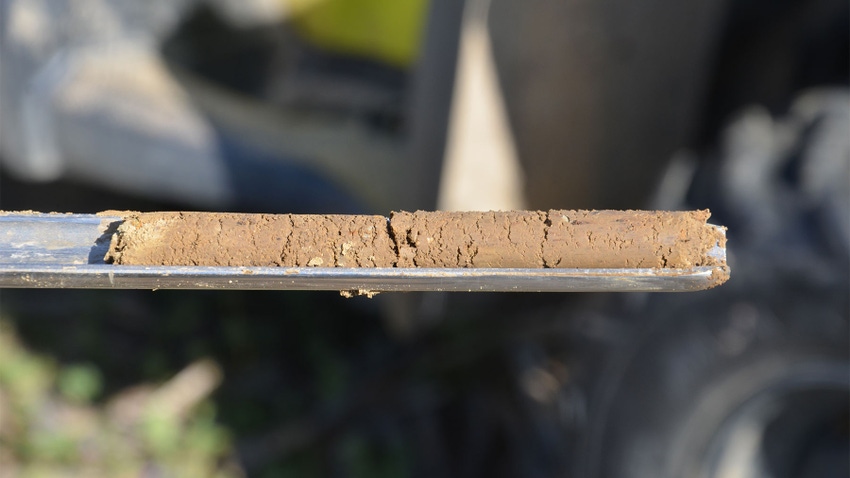
If you own farmland in Indiana, you may have received a postcard promoting free soil sampling. In fact, so many acted on the offer that the program was suspended temporarily so staff could catch up. Who would offer free soil sampling, and why?
Trevor Laureys, director of soil conservation for the Indiana State Department of Agriculture, says ISDA is behind the effort, but it is not acting alone. This program is supported through U.S. EPA’s Gulf Hypoxia Program with promotional help from the Indiana Soybean Alliance and the Indiana Corn Marketing Council. Funding to energize the effort came from federal funds.
“It’s an initiative to help reduce nutrient loads going into the Mississippi River Basin,” Laureys says. “That’s why we originally offered free soil sampling and fertility analysis on ag fields, pastures and specialty crop fields. We want to help improve farm economics and minimize ecological impacts by offering these services.”
Program results
When the program began in the fall, priority was given to farmers with smaller acreages, including those who have considerable acreage in pastures and hay.
“Many of these fields have not been tested for nutrient analysis ever,” Laureys says. And because operators of much of this land don’t have experience with soil sampling, the program initially was set up so ISDA employees in the Division of Soil Conservation would make an appointment and go take the samples. Then when results came back, they would revisit the farm, sit down with the farmer and/or landowner, and discuss recommendations made by the soil testing lab.
By late fall, Laureys reports that over 150 landowners had asked for soil testing on over 10,000 acres. More than two dozen ISDA technicians spread throughout Indiana are currently working with those landowners to pull samples on those acres. Soil samples are tested either at A&L Labs in Fort Wayne, Ind., or at Waters Lab in Kentucky.
“We’re not in the business of making recommendations ourselves, but our technicians and conservation partners can help farmers understand the reports and recommendations made by the labs,” Laureys says.
Most Indiana farmers and landowners were eligible, but a few are not, primarily because they are covered by other watershed programs in northeast or extreme northwest Indiana. To see if you are in one of the excluded areas, visit gisdata.in.gov.
Until ISDA staff catches up with the workload, more sign-ups for sampling aren’t being taken.
Future plans
Laureys is hopeful that this portion of the program will not only be reopened but also expanded. He says they are working on different partnerships that would enable free or reduced-price soil sampling on up to 400 acres per operation for larger growers.
“The idea is to contract with crop advisers to do the sampling in that program,” Laureys explains. “We’re still working to put that program together.”
The goal of reducing nutrient loads heading toward the Mississippi River basin aligns with nutrient reduction goals in place for Indiana. ISDA cooperated with several other agencies and the Indiana Conservation Partnership in establishing those goals. The target is reducing hypoxia and low oxygen levels for fish in the Gulf, Laureys concludes.
To learn more about the program, email Laureys at [email protected] or email [email protected].
About the Author(s)
You May Also Like




